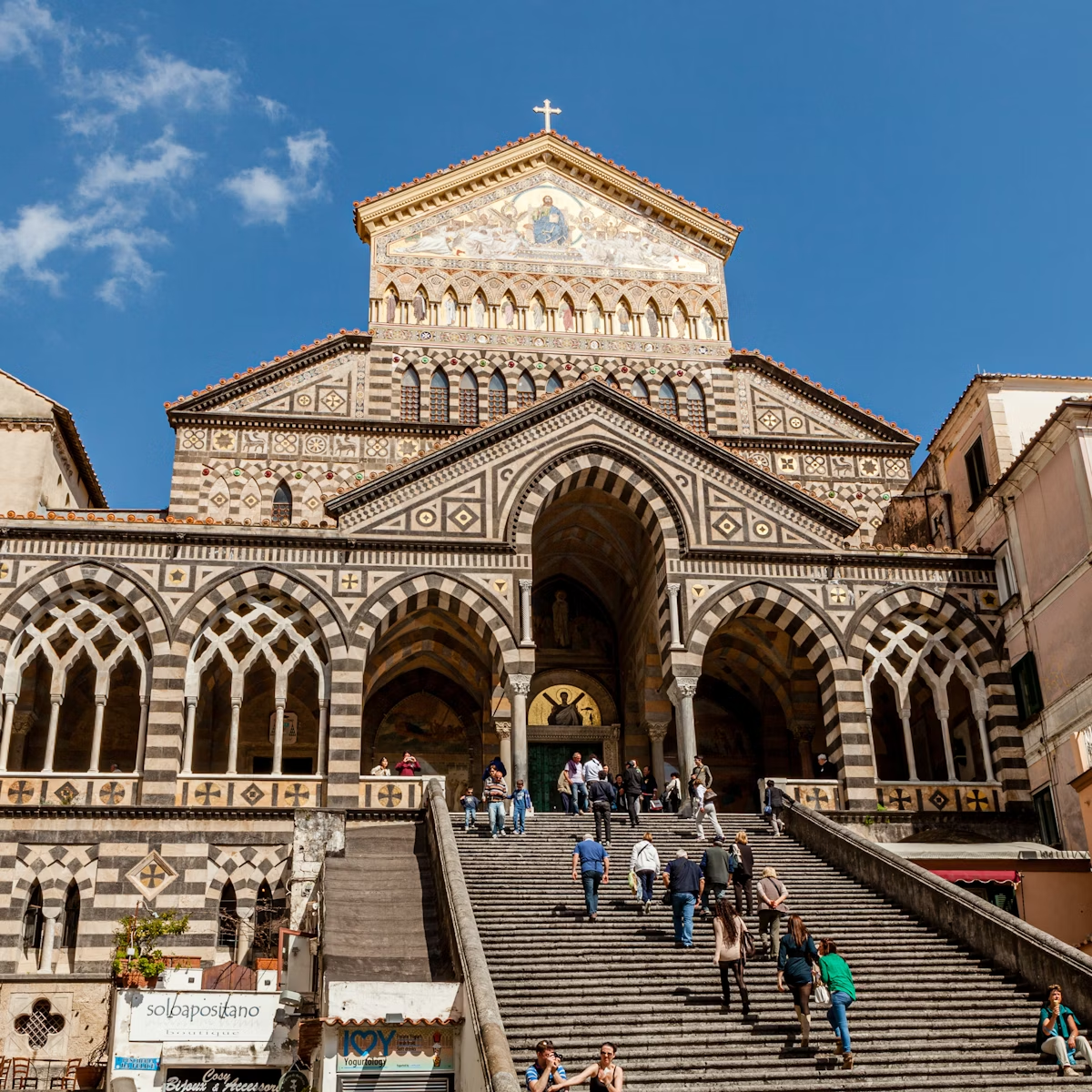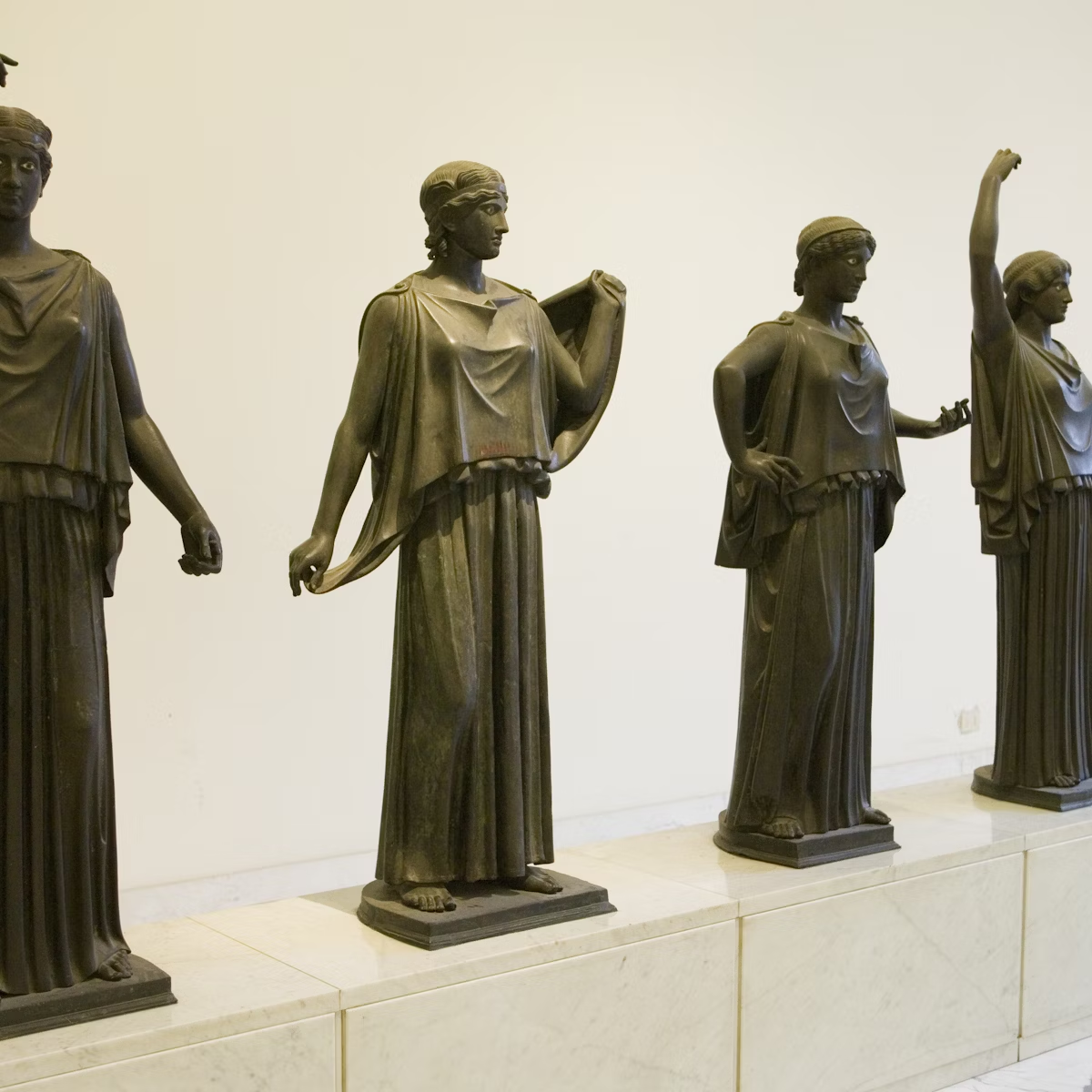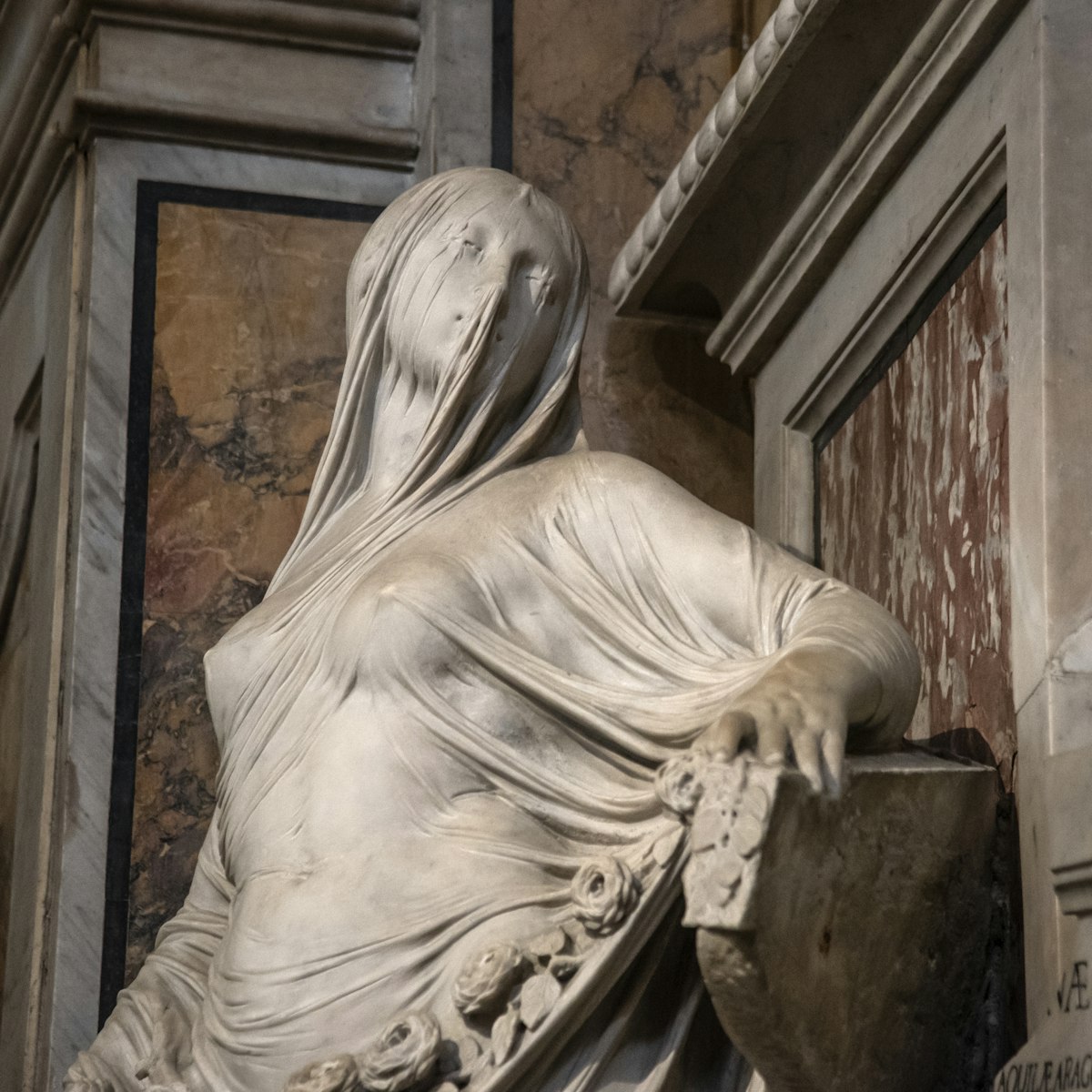If you only visit one place in Ravello, it should be Villa Cimbrone. With its breathtaking belvedere, enchanting gardens, mysterious sculptures and architecture spanning centuries, it encompasses everything you should experience on the Amalfi Coast, with beauty to spare. It’s only 10 minutes and a maze of alleys away from the main square of Ravello, yet it feels like another world entirely.
A true open-air museum, Villa Cimbrone is an ode to romanticism. The six-hectare (14.8-acre) grounds overshadow the villa itself; in fact, the most famous photos of Ravello depict views of the luxurious English and Italian-style gardens or their classical-inspired architecture. The juxtaposition of styles from different cultures and centuries gives the grounds an irresistible, otherworldly vibe.
You will run into tourists from all over the globe here; notice how differently they react to each section of the grounds. There may be couples who chose Villa Cimbrone as a destination for their wedding or a string quartet ready to play a concert with the backdrop of the Tyrrhenian sea. Yet another reason to visit for those who love to immortalize moments is the mandatory Infinity Terrace photo op.
The Infinity Terrace
The unique timelessness of this place is obvious as you walk through the gates towards the stone cloister and crypt covered in ivy. The double-arched windows and majolica decorations, mixing faux Gothic, Arabic and Venetian styles, were only built a century ago.
Preluding the belvedere stands a statue of Ceres, goddess of the harvest, austere and tall, guarding the entrance to this beautiful spot. The open stone temple culminates in a cupola and is also known as Door to the Sun.
Adorned by classical marble busts perched on the railing, the Infinity Terrace is 300 meters (984ft) above the sea level. Being here feels like you can simultaneously touch the sea and the sky with your fingertips. Sometimes the two merge on the horizon, deep blues that make it impossible to tell when one ends and the other begins. There is a bit of sacrality to the salt air you breathe here; so high up, dominating the town of Amalfi beneath the terrace, glimpsing the mountains of Cilento in the distance, the real world feels a million miles away.
The grounds of Villa Cimbrone
Once you can tear yourself away from the terrace view, wander up towards the Hill of Mercury to admire the bronze statue of the Resting Hermes. On the way, you will encounter an inviting bench in the shadow of an oak tree. Above it, an inscription reads: “Lost to a world in which I crave no part, I sit alone and commune with my heart. Pleased with my little corner of earth, glad to have come, not sorry to depart.” The quotation has been erroneously attributed to D.H. Lawrence about his own stay at Villa Cimbrone, but the verses were penned by Catullus circa 60 BCE about somewhere else entirely. However, they could not be more fitting to describe the preternatural peace that Villa Cimbrone exudes.
Venture deeper within the grounds and descend the steps surrounded by fragrant cypresses and lavender, and you will encounter the Temple of Bacchus, a round structure tucked away in a north-east corner of the garden, with its own little panorama. Keep walking east and delve into Eve’s grotto where an immaculate statue of the first woman hides away from sight, shy in her posture, almost shocked to have been found. As you follow the path back toward the entrance, you will discover more enchanting nooks and ornaments like the Avenue of Hortensia, a replica of Donatello’s David, the Moorish-style tea room and the wisteria-covered Avenue of Immensity.
On your way to the exit you'll find the Rose Terrace, blooming between May and October with various types of roses – a triumph of colors and smells. The flowerbeds are designed geometrically; at the center of the rectangle is a stone sundial, at every side a stone statue of Ancient Greek inspiration.
History of Villa Cimbrone
Over 2000 years ago, the hill above Amalfi was known by the Latin name, “Cimbronium.” Noble families consistently inhabited Cimbronium during the Middle Ages; it even belonged to relatives of the Kings of Naples.
In the late 1800s English peer Lord Beckett visited Ravello on a Grand Tour and he was so captivated by its charm that he bought Villa Cimbrone in 1904. Since then, many artists have found solace in the hidden corners of the villa. The literary group known as the London Bloomsbury Set visited often, including lovers Virginia Woolf and Vita Sackville-West who also contributed to redesigning the gardens, and T.S. Eliot and E.M. Forster who found inspiration for their notable works there.
Other VIP guests included Winston Churchill, Maynard Keynes and Greta Garbo, who eloped to Villa Cimbrone with Leopold Stokowski in 1938 as you can read on the plaque dedicated to her at the villa.
Tips for visiting Villa Cimbrone
The Villa is only a 10-minute walk from Piazza Duomo, but it’s a steep and ruthless one. Wear comfortable shoes – it’s not hard to slip on the ancient pavements of Ravello.
If you think you’re lost on your way to Villa Cimbrone, you’re probably going in the right direction. The narrow alleys lined with lemon and fig trees are as much a part of the experience as the Infinity Terrace itself.
Villa Cimbrone is most beautiful when the sun reflects on all its colors, but it can get really hot on summer days. Avoid the warmest hours (11am-3pm) and fill up your water bottle beforehand; there are no drinking fountains, and the cafe in the villa is quite expensive, although enchanting.
Today, the main building of Villa Cimbrone is a prestigious hotel de charme. The 12th-century minimalist exterior reveals refined elegance on the inside, furnished with frescoed surfaces and authentic antiques. The hotel hosts a Michelin-starred Italian restaurant (Il Flauto di Pan), another restaurant based on the rediscovery of ancient flavors (Mediterraneo), a cellar, a lounge bar (V Lounge Bar), and a cafè (Lucille’s Balcony).
Access to the gardens of Villa Cimbrone costs €10 and it's open daily between 9am and sunset. Tickets can be purchased in person. It’s possible to book a guided tour by contacting Hotel Villa Cimbrone.










